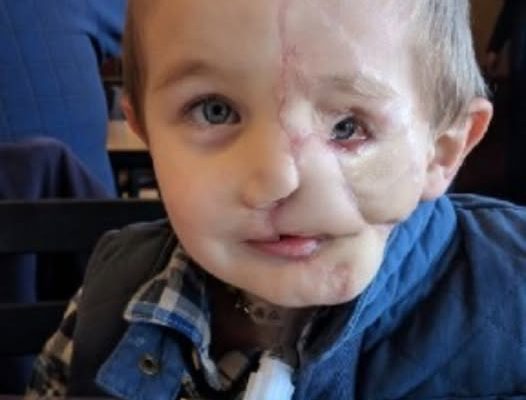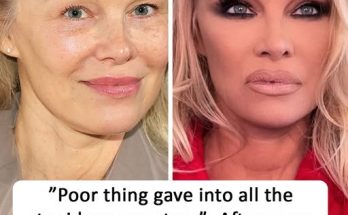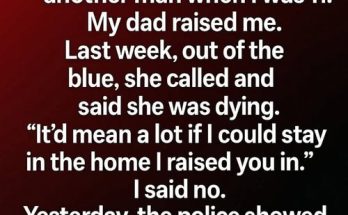At just five years old, Ryder Wells has already endured more pain and trauma than most people will face in a lifetime. What began as a family trip for Thanksgiving in 2015 turned into a life-altering nightmare. Ryder, a toddler at just 21 months old, was viciously attacked by two 100-pound Rottweilers while visiting family in North Carolina.
The attack left him with devastating injuries: nearly half of his face was torn away, his teeth were shattered, one of his arms was broken, and he suffered a punctured lung. Medical professionals didn’t offer much hope. Doctors warned his family to prepare for the worst. But Ryder defied the odds. Despite the trauma, this little boy survived, launching a journey marked by resilience, medical miracles, and a heart-wrenching need for empathy.
Since the horrific incident, Ryder has undergone approximately 50 surgeries. These procedures were essential not only to repair the visible damage but also to help him regain the basic functions that most children take for granted. Yet despite his strength and courage, Ryder’s greatest challenge hasn’t just been medical—it’s been the way the world sees him.
Ryder’s mother, Brittany Wells, has opened up about the emotional toll that public reactions have taken on her son. Now 31 and living in Granite Falls, North Carolina, she describes the heartbreaking experiences they face during routine activities like visiting the park or going grocery shopping. Brittany recalls children pointing at Ryder and calling him a “monster.” Adults have stared. One stranger even muttered “ew” while walking past. These encounters cut deeply—not just for Ryder, but for a mother who has watched her child fight for every inch of his life, only to be judged by strangers based on scars he didn’t choose.
It’s this cruelty—casual, thoughtless, and often unchecked—that Brittany wants to confront. Because beyond the scars is a boy who is happy, playful, and full of life. Ryder enjoys school and loves learning, though his teaching assistant recalls the early days when adults couldn’t help but stare. At times, Ryder tries to hide. He often wears a cap, tilts his head down, or relies on his glasses to obscure his face. But no matter how much he tries to fade into the background, his mother makes sure he knows his worth. Every single day, she reminds him: he is beautiful, and his differences are what make him special.
Brittany isn’t just raising awareness for her son. She’s sending a message to the world: kindness is not optional. Ryder’s survival was a miracle made possible by top-tier medical care, his own tenacity, and the unwavering love of his family. But emotional healing is an ongoing process—and it’s one the public plays a role in, whether we like it or not. We can’t control every circumstance, but we can control how we treat people, especially those who look different from what society calls “normal.”
The trauma Ryder has faced isn’t only physical. He will continue to live with the scars, not just on his body, but in the social environment around him. For kids like Ryder—children with facial differences—survival is just the beginning. Navigating a world that’s often unkind, superficial, and ignorant adds an entirely new layer of struggle. And the burden should never fall solely on their shoulders.
That’s why Brittany is speaking out, and why Ryder’s story needs to be shared. Because the real problem isn’t the face of a child who survived a brutal dog attack—it’s the reaction of people who haven’t learned to show empathy.
Teaching compassion starts at home. Parents, educators, and community members must teach children how to be kind, inclusive, and respectful. When a child sees someone who looks different, it’s natural to be curious. But that curiosity must be guided by compassion, not cruelty. Adults need to model kindness—because kids are watching, and they replicate what they see.
Ryder’s strength is undeniable. In the face of unimaginable pain and social rejection, he still smiles. He still shows up. And every day, he continues to prove that resilience isn’t just about surviving, but about finding ways to thrive, even in a world that often doesn’t understand you.
As he grows, Ryder will undoubtedly face new challenges, but he will also continue to inspire. His story is a powerful reminder that being different is not something to hide—it’s something to honor. Every scar tells a story. Every surgery marks a step forward. And every kind word he receives is a counterbalance to the cruelty he’s endured.
If there’s one takeaway from Ryder’s journey, it’s this: we must choose empathy over judgment, especially when it comes to children. Words matter. Reactions matter. The smallest act of kindness can have a lasting impact on a child who is simply trying to be accepted.
Brittany hopes Ryder’s story will continue to raise awareness about facial differences and the social stigma that often accompanies them. Her message is simple, but powerful: teach your children kindness. Celebrate uniqueness. And if you see someone who looks different—whether from injury, illness, or birth—offer them the same respect and humanity you’d want for your own loved ones.
In a world obsessed with appearance, Ryder is redefining beauty. Not with flawless skin, but with strength, spirit, and a smile that has survived the unimaginable. Let his story remind us all that the true “monster” isn’t the boy with the scars—it’s a society that refuses to see past them.
Share his story. Talk to your children. Choose compassion. And be part of a world that sees the person behind the face.
If Ryder Wells’ journey has touched your heart, don’t let it end here. Spread awareness. Be the reason someone learns to lead with kindness. Ryder’s story isn’t just about survival—it’s about the kind of world we choose to create for those who need our empathy the most.



